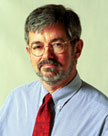 In the days after the Sept. 11 terror attack on the United States, I drove through a number of towns along the central mountain spine of Puerto Rico. In five towns and cities, I saw no display of the U.S. flag, except at the various city halls, where it is a permanent fixture. In the days after the Sept. 11 terror attack on the United States, I drove through a number of towns along the central mountain spine of Puerto Rico. In five towns and cities, I saw no display of the U.S. flag, except at the various city halls, where it is a permanent fixture.
The same was true for San Juan, Puerto Rico’s largest city. Except for a handful of organized vigils, there were virtually no American flags to be seen.
Many in Puerto Rico seemed caught unawares by the unfolding display of patriotism in the states. The display of American flags here has traditionally been limited to the 4th of July and few other occasions. Some islanders said they feared violence or vandalism from the anti-Navy protesters if they displayed the flag. Indeed, the U.S. flag has always played second fiddle to the Puerto Rican flag at island events.
While few American flags were to be seen, most Puerto Ricans seemed deeply touched by the terrorist attacks. Letters to the editor and radio call-in listeners seemed unanimous in their expressions of sympathy and condemnation of the attacks. Blood donations for victims were at record levels, fund raising drives were undertaken for victims, and solemn candlelight vigils were held.
At an official level, politics still prevailed. The current Popular Democratic Party administration, led by Gov. Sila M. Calderón, declared that -- despite the national military emergency -- it would continue its policy for the eviction of the Navy from its training facility on Vieques. The governor’s chief of staff, César Miranda, made that clear when he told the press on Sept. 17 that the government would continue with its lawsuit in U.S. District Court in Washington, D.C. against Navy training on Vieques.
Calderón herself has tried to stay above the issue, letting subordinates speak on her Vieques policy. She instead busied herself with several gestures, including sending rescue workers to the World Trade Center, that she took pains to publicize on the island and elsewhere. She made a taped televised address to the people of Puerto Rico on the tragedy, and took out full-page ads in the New York Times and Washington Post with her condolences for the tragedy.
What Calderón told stateside readers in her ads belied her actions at home. Her ads, which cost $100,000, carried photos of Puerto Rican rescue and medical workers that Calderón had sent to New York and Washington. The ad also included a photo of part of the donated blood shipment sent to New York. Calderón’s name and seal appeared above the photos.
The text of the ad said that "we again stand firm" with President Bush and all Americans confronting terrorism.
Calderón’s ad neglected to explain how her campaign to force the Navy from Vieques squared with her declarations to "stand firm" with her fellow Americans in the fight against terrorism. In the wake of the Sept. 11 attacks, it would seem obvious to all, even beyond discussion, that Vieques training is vital at this time as U.S. military forces prepare to confront international terrorists and the governments that support them. Moreover, the administration’s Vieques stance seemed especially out of step with the PDP’s long-standing mantra that " common defense" is one of the pillars of the U.S.-commonwealth relationship.
The Vieques facilities provide precisely the training environment necessary to the kinds of operations the United States may deploy in the Middle East and Southwest Asia, including carrier-based aircraft sorties, ship-to-shore shelling and missile launches, and coordinated amphibious landings.
Despite the obviousness of the need, leading members of Calderón’s government and of her party declared the Vieques training bore no relationship to the national emergency. Ponce Mayor Rafael Cordero Santiago was among those who said the Vieques training bore no relationship to defending against terrorism. Cordero was also among several prominent populares who suggested that the United States’s conduct of its foreign policy was somehow to blame for the terrorist attacks. Cordero’s remarks drew widespread condemnation.
Fortaleza Chief of Staff Miranda reiterated there was no change in the Calderón administration’s Vieques stance, arguing that there was not in contradiction between the lawsuit and the commonwealth’s support of Bush’s anti-terrorism efforts. He said the federal lawsuit simply was to intended to stop the Navy bombing and to enforce the commonwealth’s anti-noise ordinance.
Others were more realistic. Resident Commissioner Anibal Acevedo Vilá said that because of the events of last week, Vieques was "no longer an issue" in the United States.
Robert Becker, Managing Editor of The San Juan Star, writes the weekly Puerto Rico Report column for the Puerto Rico Herald. He can be reached directly at: dkarle@coqui.net |
. |
Defensa común, las dos caras del PPD
En los días siguientes al espantoso ataque del 11 de septiembre a los Estados Unidos, atravesé en auto varias poblaciones de la columna montañosa central de Puerto Rico. En cinco pueblos y ciudades, no vi ninguna bandera de los EE.UU., con excepción de las que se encuentran de manera permanente en los ayuntamientos. Lo mismo ocurría en San Juan.
Muchos en Puerto Rico parecían sorprendidos por el despliegue de patriotismo en los Estados Unidos. La exhibición de las banderas americanas ha estado tradicionalmente limitada al 4 de julio y a otras pocas ocasiones. Por cierto, la bandera estadounidense siempre ocupó un segundo puesto respecto a la puertorriqueña en los eventos de la isla.
A nivel oficial, todavía prevalece la política. La actual administración del Partido Popular Democrático, conducida por la gobernadora Sila M. Calderón, declaró que -a pesar de la emergencia militar nacional- continuaría con el plan de acción para expulsar a la Marina de su campo de entrenamiento en Vieques. |

